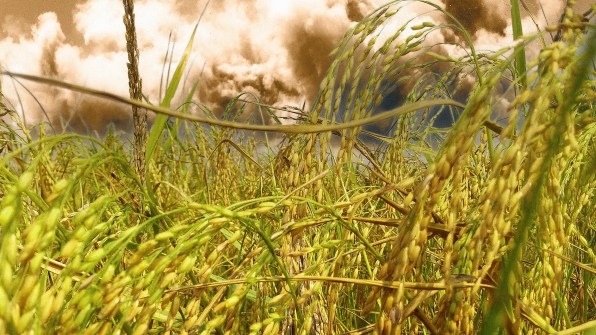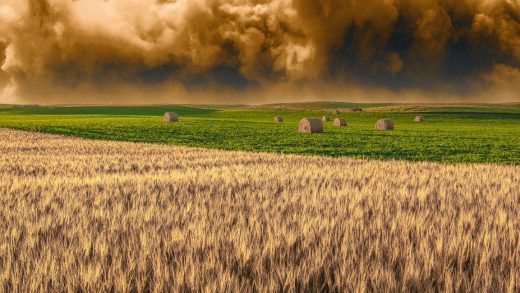Global agricultural subsidies are harming the planet—and our diets
That figure comes from a new report by the Food and Agriculture Organisation, the UN Development Programme, and the UN Environment Programme that argues for a mass repurposing of farm subsidies so that instead of negatively affecting people and the planet, this sort of monetary support helps create a food system that restores ecosystems, produces few emissions, improves the livelihood of farmers, and increases global nutrition.
Current agricultural support can come via price incentives, such as import tariffs and export subsidies, or as fiscal subsidies, which are often tied to the production of a specific commodity—like beef—or input—like chemical fertilizers or pesticides. The report finds that emission-intensive commodities, including beef, milk, and rice, along with products that can contribute to an unhealthy diet, like sugar, receive the most support around the world, despite their negative impacts on the climate and on people’s health.

This sort of governmental support runs counter to, and even directly contradicts, efforts by countries to reduce their emissions and meet the goals of the Paris Agreement. Joy Kim, one of the report’s lead authors who leads green fiscal policy efforts at UNEP, notes that there is currently a call for countries to pledge $100 billion to finance climate change, and also $4 billion pledged to finance REDD Plus, a program that works to prevent deforestation. Yet these governments are also spending $470 billion subsidizing environmentally-harmful agricultural practices.
Meat and dairy production directly contribute to deforestation via land use change (when farmers cut down trees to make pastures or fields) and are both emissions and water intensive. Governments also provide monetary support for the use of polluting agrochemicals to increate production. “While these global financing pledges are growing… we are talking about the huge amount of public financing that is actually counterproductive,” Kim says. “We should actually look at this volume of support that is going to the agricultural sector.” Subsidies make these products cheaper at a disadvantage to other items like fruits and vegetables, which rarely receive any subsidies at all.
These subsidies perpetuate in the same way as fossil fuels, another “very environmentally harming government expenditure,” Kim says, that is bolstered by oil and gas lobbyists. “There is also a strong lobby coming from the food industry.” There’s also a disparity in who is receiving these agricultural supports. Smallholder farms, which produce 35% of the world’s food on just 12% of its land, and so are more productive per square kilometer of land than larger farms, receive fewer subsidies than larger farms and industry groups.
If the industry continues operating this way, by 2030 global agricultural support could soar to $1.7 trillion, further worsening the impact on the environment, small farmers, and global health. It’s a sign of how broken our food system currently is; even with all these current subsidies, 811 million people in the world faced chronic hunger in 2020, and around three billion people could not afford a healthy diet in 2019.
The report does not argues for the complete elimination of agricultural subsidies, but for countries to redirect their support. Governments could invest in infrastructure that improves access to and affordability of food. Subsidies could go to clean technology like water-efficient irrigation systems. Rather than input-based supports, there could be more targeted supports that go to those small farmers via direct cash transfers. There could be more emphasis on “general services,” a category of agricultural support that receives just $110 billion, compared to the $294 billion provided in the form of price incentives and $245 billion as fiscal subsidies to farmers, 70% of which is tied to the production of those specific products like beef and milk.
As countries work to recover from the economic impact of the COVID-19 pandemic, they could use that moment to make these changes. “Many countries, particularly developing countries, are actually facing very severe fiscal constraints and rising debt levels,” Kim says. “And this is the perfect time for the government to really improve the efficiency of public expenditures, cutting down inefficient public expenditures, and aligning those public expenditures with sustainability. Otherwise, it’s also undermining the [efforts to] finance climate change and biodiversity because it’s totally counterproductive.”
(32)



